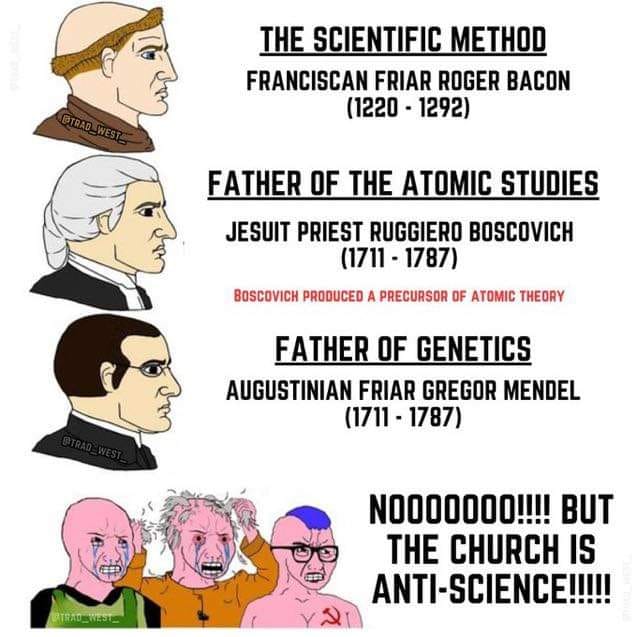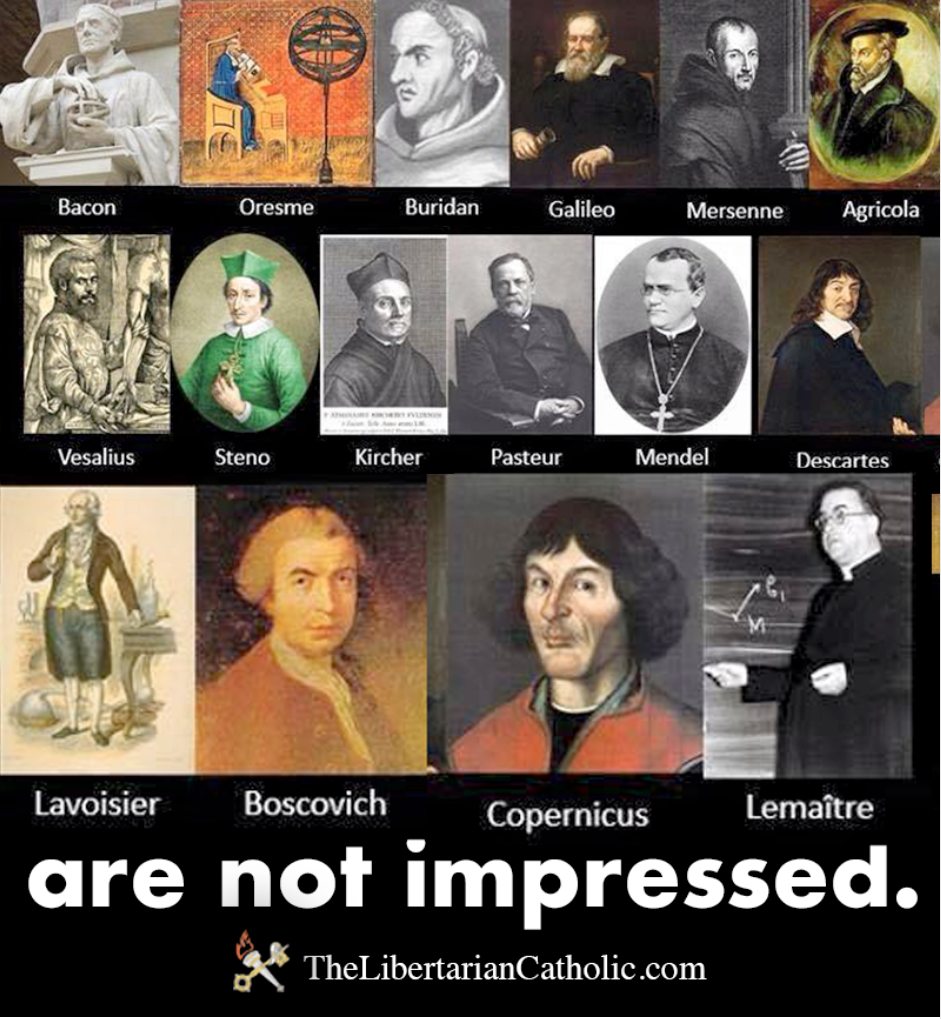The Catholic Church has a long and storied history of supporting scientific discovery and innovation. From the early days of the Church to the modern era, Catholic scholars, scientists, and theologians have made significant contributions to our understanding of the natural world, the human body, and the universe at large. In fact, one might rightly argue that the Church invented modern science. In this article, we will explore some of the key Catholic contributions to science over the centuries.
The Early Days of Catholic Science
In the early days of the Church, many of the most important scientific discoveries were made by Catholic scholars and theologians. Roger Bacon, a Franciscan friar and philosopher, was a key figure in the development of modern science. He argued that scientific inquiry should be based on empirical observation and experimentation, rather than relying on traditional authority and dogma. Bacon made important contributions to the fields of optics, mathematics, and alchemy, and he was a pioneer in the use of lenses and other optical instruments. His emphasis on experimentation and observation laid the foundations for the scientific method, which has been a cornerstone of scientific inquiry ever since.
St. Augustine, for example, was a key figure in the development of Christian theology and philosophy, and he also made important contributions to the fields of astronomy and mathematics. St. Albertus Magnus, a Dominican friar and bishop, was a polymath who made significant contributions to the fields of chemistry, geology, and botany, among others.
The Renaissance and the Scientific Revolution
During the Renaissance and the Scientific Revolution, Catholic scientists and scholars continued to make important contributions to the fields of science and mathematics. Nicolaus Copernicus, a Catholic canon, was a key figure in the development of the heliocentric model of the universe, which challenged the prevailing view that the Earth was the center of the cosmos. Galileo Galilei, another Catholic scientist, made important discoveries in the fields of astronomy, physics, and mathematics, and his work helped to lay the foundations for modern science.
Catholic Contributions to Medicine
Catholic scientists and scholars have also made significant contributions to the field of medicine over the centuries. Nicolas Steno was a Danish scientist and Catholic bishop who made significant contributions to the fields of anatomy and geology. He was the first to describe the process of fossilization and the layering of sedimentary rocks, which helped to establish the principles of stratigraphy and the geological timescale. Steno’s work on the formation of rock layers and the history of the Earth’s crust laid the foundations for modern geology. He also made important discoveries in the field of anatomy, particularly in the study of the brain and the nervous system. Despite his scientific achievements, Steno’s faith remained strong, and he eventually became a Catholic bishop.
Gregor Mendel, an Augustinian friar and scientist, is considered the father of modern genetics. His work on pea plants laid the foundations for our understanding of heredity and genetics.
Louis Pasteur was a French chemist and microbiologist who made significant contributions to the field of medicine and public health. He is best known for his development of the process of pasteurization, which involves heating liquids to a high temperature to kill bacteria and other microorganisms. This process has been widely used to preserve food and prevent the spread of disease. Pasteur also developed the first successful vaccines for rabies and anthrax, and he made important discoveries in the field of microbiology, including the germ theory of disease. Despite his scientific achievements, Pasteur remained a devout Catholic throughout his life.
Catholic Contributions to Astrophysics
In the modern era, Catholic scientists and scholars continue to make important contributions to the fields of science and mathematics. Georges Lemaître, a Belgian priest and physicist, was a key figure in the development of the Big Bang theory, which posits that the universe began with a massive explosion.
The Jesuits, a Catholic religious order, have made significant contributions to the field of astrophysics over the centuries. Jesuit scholars and scientists have made important discoveries in the fields of astronomy, mathematics, and physics, and they have played a key role in the development of modern science. For example, the Jesuit priest and astronomer Christopher Clavius was a key figure in the development of the Gregorian calendar, which is still used today. The Jesuit mathematician and physicist Angelo Secchi made important contributions to the study of the sun and the classification of stars, and he was one of the first scientists to use photography to study the heavens. The Jesuits’ contributions to astrophysics continue to this day, with Jesuit scientists and scholars continuing to make important discoveries and advance our understanding of the universe.
Others include Saint Albertus Magnus, the patron saint of scientists, Giuseppe Mercalli, Marin Mersenne, Pierre Gassendi, Giovanni Baptiste Riccioli, Bernard Bolzano, Juan Buridan, Robert Grosseteste, Christopher Clavius, Blaise Pascal, father of algorithms, Dennis Ritchie, creator of C language, and of course Francesco Maria Grimaldi.
Conclusion
The Catholic Church has a long and storied history of supporting scientific discovery and innovation. From the early days of the Church to the modern era, Catholic scholars, scientists, and theologians have made significant contributions to our understanding of the natural world, the human body, and the universe at large. As we continue to explore the mysteries of the cosmos, it is important to recognize and celebrate the Catholic contributions to science over the centuries.

 The Libertarian Catholic
The Libertarian Catholic
















